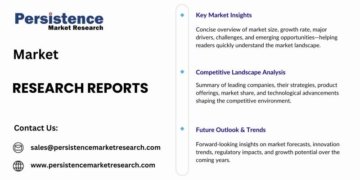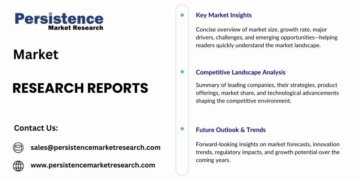According to a new report published by Allied Market Research, titled, “Building Automation System Market,” The building automation system market size was valued at $75.8 billion in 2021, and is estimated to reach $194.9 billion by 2030, growing at a CAGR of 10% from 2022 to 2030.
Download Research Report Sample & TOC : https://www.alliedmarketresearch.com/request-sample/A31349
Building Automation System, also known as Energy Management Control Systems (EMCS) or Building Management Systems (BMS), are smart devices that pilot lighting, HVAC ventilation, fire protection systems and general building automation. Building automation systems are created to allow for the automatic and hands-free operation of the building’s systems. They are frequently utilized in installations where the users are absent or communicating with the equipment via a digital interface or voice command. When a person is not there, a building automation system can operate anything from temperature and lighting to HVAC. These factors are anticipated to propel the building automation system market share in the coming years.
However, some of the disadvantages of building automation system market are the small equipment size because most building management systems do not have the capability to control smaller equipment, there will likely be significant blind spots. Most properties with a BMS have it installed primarily on the big loads, such as large HVAC equipment and lighting, due to the high expense to build, maintain, and operate it. Concentrating efforts on building systems that will have the biggest effects on operating costs and tenant satisfaction makes sense when resources are few.
Governments of various nations are providing industries with considerable incentives to use business automation technology. The Indian Government is urging various companies to implement business automation technology since it saves money and consumes less energy. Furthermore, during the forecast period, proactive government measures to encourage the adoption of BAS systems are anticipated to increase the building automation system market growth .
Request For Customization @ https://www.alliedmarketresearch.com/request-for-customization/A31349
The global building automation system market analysis is segmented based on component, application, offerings, and region. By component, it is classified into hardware and software. By application, it is classified into industrial, residential, and commercial. By offerings, it is classified into facility management systems, security & access controls, fire protection systems, building energy management software, bas services, and others. By region, the market is analyzed across North America, Europe, Asia-Pacific, and LAMEA.
Competitive Scenario
The research report on the global building automation system market provides a thorough analysis of its competitive scenario. AMR’s study sheds light on key industry players, offering valuable insights to help businesses and stakeholders understand market trends, identify growth opportunities, and effectively mitigate risks. This information facilitates innovation, enables informed decision-making, and encourages the development of novel strategies. Moreover, the report highlights the innovative tactics utilized by leading companies to enhance their presence in the evolving market landscape.
Some prominent companies profiled in the report are:
To conclude, the Allied Market Research report highlights robust growth potential in the building automation system industry, driven by IoT integration, energy efficiency initiatives, and cloud-based technologies. Despite initial challenges, significant growth opportunities exist in smart building construction and AI integration. These advancements enable businesses and stakeholders to effectively analyze and capitalize on changing market dynamics.
Recent Trends Shaping the Future of Building Automation Systems
– Integration of IoT
Buildings now use IoT devices to gather information from various systems (HVAC, lighting, security) to enhance operations. For instance, sensors are able to regulate heating and cooling based on occupancy and environmental conditions, resulting in energy conservation.
– Energy efficiency and sustainability
BAS now prioritizes energy efficiency using automated systems that monitor energy consumption in real-time and adjust as needed. For example, the use of natural light sensors to regulate artificial lighting helps minimize energy wastage.
– Cloud-based BAS solutions
Cloud platforms provide a centralized way to monitor and control building systems from any location. This capability allows facility managers to respond quickly to issues and improve performance remotely, enhancing overall operational efficiency.
– Advanced analytics and AI
AI algorithms analyze data from BAS to predict maintenance needs and enhance system performance. For example, predictive analytics can identify potential equipment malfunctions in advance, thus decreasing downtime and reducing maintenance costs.
Inquiry Before Buying : https://www.alliedmarketresearch.com/purchase-enquiry/A31349
Key Findings of the Study:
Based on component, the hardware sub-segment emerged as the global leader in 2021 and the software sub-segment is anticipated to be the fastest growing sub-segment during the forecast period
Based on application, the commercial sub-segment emerged as the global leader in 2021 and the industrial sub-segment is predicted to show the fastest growth in the upcoming years
Based on offerings, the security and access controls sub-segment emerged as the global leader in 2021 and the building energy management software sub-segment is anticipated to be the fastest growing sub-segment during the forecast period
Based on region, the Asia-Pacific market registered the highest market share in 2021 and is projected to maintain the position during the forecast period
The study also provides in-depth analysis of the building automation system market trends
Read More Reports :
https://pawarrishika08.medium.com/mini-led-display-emerging-as-a-top-notch-technology-6c127604038b
Contact:
David Correa
1209 Orange Street,
Corporation Trust Center,
Wilmington, New Castle,
Delaware 19801 USA.
Int’l: +1-503-894-6022
Toll Free: +1-800-792-5285
Fax: +1-800-792-5285
help@alliedmarketresearch.com
Web:https://www.alliedmarketresearch.com
About us :
Allied Market Research (AMR) is a full-service market research and business-consulting wing of Allied Analytics LLP based in Wilmington, Delaware. Allied Market Research provides global enterprises as well as medium and small businesses with unmatched quality of “Market Research Reports” and “Business Intelligence Solutions.” AMR has a targeted view to provide business insights and consulting to assist its clients to make strategic business decisions and achieve sustainable growth in their respective market domain.
We are in professional corporate relations with various companies, and this helps us in digging out market data that helps us generate accurate research data tables and confirms utmost accuracy in our market forecasting. Each and every data presented in the reports published by us is extracted through primary interviews with top officials from leading companies of domain concerned. Our secondary data procurement methodology includes deep online and offline research and discussion with knowledgeable professionals and analysts in the industry.
This release was published on openPR.
















